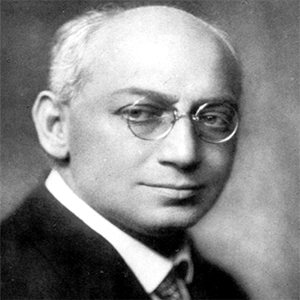Sandor Ferenczi’s concept of the dialogue of unconsciouses: a clinical example

Submitted: August 1, 2022
Accepted: April 17, 2023
Published: May 2, 2023
Accepted: April 17, 2023
Abstract Views: 1032
PDF: 260
HTML: 43
HTML: 43
Publisher's note
All claims expressed in this article are solely those of the authors and do not necessarily represent those of their affiliated organizations, or those of the publisher, the editors and the reviewers. Any product that may be evaluated in this article or claim that may be made by its manufacturer is not guaranteed or endorsed by the publisher.
All claims expressed in this article are solely those of the authors and do not necessarily represent those of their affiliated organizations, or those of the publisher, the editors and the reviewers. Any product that may be evaluated in this article or claim that may be made by its manufacturer is not guaranteed or endorsed by the publisher.
Similar Articles
- Andrea Ferrero, The Model of Sequential Brief-Adlerian Psychodynamic Psychotherapy (SB-APP): Specific Features in the Treatment of Borderline Personality Disorder , Research in Psychotherapy: Psychopathology, Process and Outcome: Vol. 15 No. 1 (2012)
- Diego Sarracino, Alice Garavaglia, Emanuela S. Gritti, Laura Parolin, Marco Innamorati, Dropout from cognitive behavioural treatment in a case of bulimia nervosa: The role of the therapeutic alliance , Research in Psychotherapy: Psychopathology, Process and Outcome: Vol. 16 No. 2 (2013)
- Raffaele Popolo, Antonio Semerari, Antonino Carcione, Donatella Fiore, Giuseppe Nicolò, Laura Conti, Roberto Pedone, Michele Procacci, Stefania d'Angerio, Giancarlo Dimaggio, Le disfunzioni metacognitive nei disturbi di personalit Una review delle ricerche del III Centro di Psicoterapia Cognitiva , Research in Psychotherapy: Psychopathology, Process and Outcome: Vol. 13 No. 2 (2010)
- Javiera Duarte, Claudio Martinez, Alemka Tomicic, Episodes of meeting in psychotherapy: An empirical exploration of patients’ experiences of subjective change during their psychotherapy process , Research in Psychotherapy: Psychopathology, Process and Outcome: Vol. 23 No. 1 (2020)
- Cheri L. Marmarosh, Chiara Abbatelli, Molly Tulipan, Jasmine Kaleka, Jordan Ohanesian, Charlotte Howson, Carrying Jeremy Safran into sessions: relying on internal representations of researchers to facilitate emotion regulation, clinical intervention, and self-efficacy , Research in Psychotherapy: Psychopathology, Process and Outcome: Vol. 22 No. 1 (2019)
- Irene Messina, Henriette Löffler-Stastka, Psychotherapists’ perception of their clinical skills and in-session feelings in live therapy versus online therapy during the COVID-19 pandemic: a pilot study , Research in Psychotherapy: Psychopathology, Process and Outcome: Vol. 24 No. 1 (2021)
- Diego Romaioli, Elena Faccio, When Therapists Do Not Know What to Do: Informal Types of Eclecticism in Psychotherapy , Research in Psychotherapy: Psychopathology, Process and Outcome: Vol. 15 No. 1 (2012)
- Corinne Talbot, Rose Ostiguy-Pion, Esther Painchaud, Claudelle Lafrance, Jean Descôteaux, Detecting alliance ruptures: the effects of the therapist’s experience, attachment, empathy and countertransference management skills , Research in Psychotherapy: Psychopathology, Process and Outcome: Vol. 22 No. 1 (2019)
- Wilma Bucci, The Referential Process as a Common Factor Across Treatment Modalities , Research in Psychotherapy: Psychopathology, Process and Outcome: Vol. 16 No. 1 (2013)
- Mauro Di Lorenzo, Alfio Maggiolini, Virginia Anna Suigo, A developmental perspective on adolescent psychoanalytic psychotherapy. An Italian study with the Adolescent Psychotherapy Q-Set , Research in Psychotherapy: Psychopathology, Process and Outcome: Vol. 18 No. 2 (2015): Special issue on Qualitative and Quantitative Research in Child and Adolescent Psychotherapy: part 1
<< < 18 19 20 21 22 23 24 25 26 27 > >>
You may also start an advanced similarity search for this article.

 https://doi.org/10.4081/ripppo.2023.655
https://doi.org/10.4081/ripppo.2023.655





